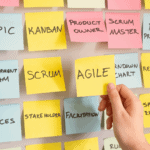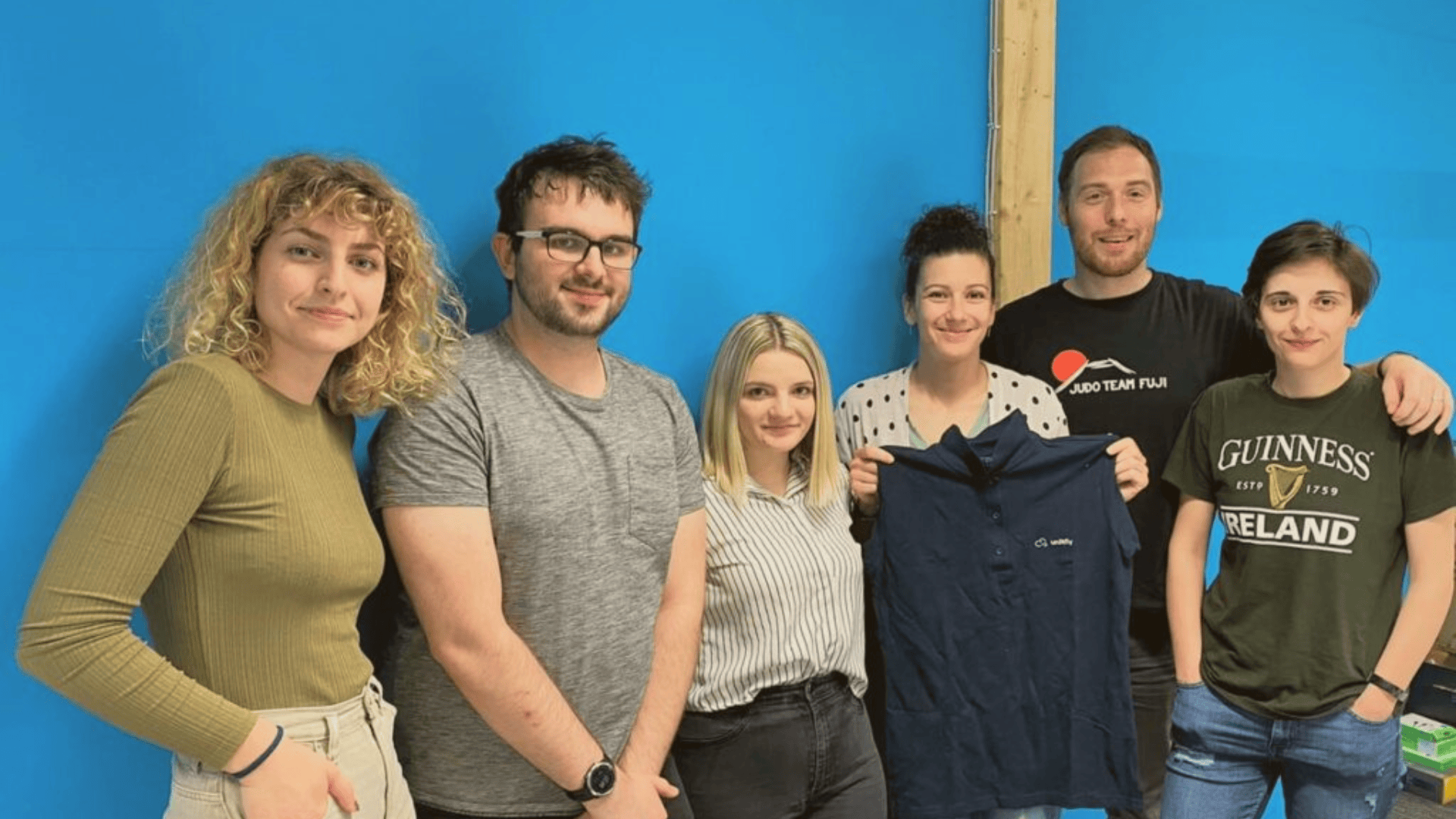
[IDEAS TO IMPACT] Fuji Judo Club – Sport Inclusion for People with Disabilities
We’ve started a series of talks, and blog posts – Ideas to Impact. This is our way of reminding ourselves of the different perspectives and paths in life. Having people of diverse backgrounds talk about their life, work and ideas, forces us to let go of our usual mindset and open ourselves to a shift of perspective. The purpose of Ideas to Impact is to share the diverse paths each of us can take. To share ideas that change the way we perceive the world around us. In listening to others’ stories and challenges, we are growing as individuals and as a company. We hope it will do the same for you.
On Friday, our Unitfly office was filled with inspiring thoughts, after a presentation delivered by Marina Drašković, a judo coach and founder of Fuji – the first judo club for people with disabilities in Croatia. She has a black belt in judo, has travelled all over the world and trained with the best of the best. Yet, she considers founding Fuji Judo Club the biggest achievement in her life.
When you are a child with a dream of going to the Olympics, you put all the efforts into that and practice two times a day. At least that’s how it was for Marina. “You’re setting goals and constantly looking forward, living in the future. But when things don’t work out as expected, you end up disappointed. It took a long time for me to finally stop living in the future, slow down and concentrate on the present.”
After letting go of the dream of being a professional athlete, Marina realized success is a subjective thing. For her, it’s about helping kids with disabilities overcome their obstacles.
Life isn’t about finding yourself; it’s about creating yourself.
Since an injury and lack of financing prevented her from accomplishing her dream of going to the Olympics, she majored in Economics. After a long search for a job in the field, she turned to what she knew best – judo. She started teaching kids in the local judo club, Pinky. Even though she didn’t have any experience with disabilities, the idea of helping disabled children engage in sports came to her mind. She got into contact with a coach who was organizing aikido classes for kids with disabilities and invited her to participate.
Knowing nothing about disabilities the children had, she started researching different conditions, studying and adapting the techniques for each child. Since then, she has completed a training program for a leader for sports activities for children with disabilities, the same program for judo coaches and a program for physiotherapeutic technician.
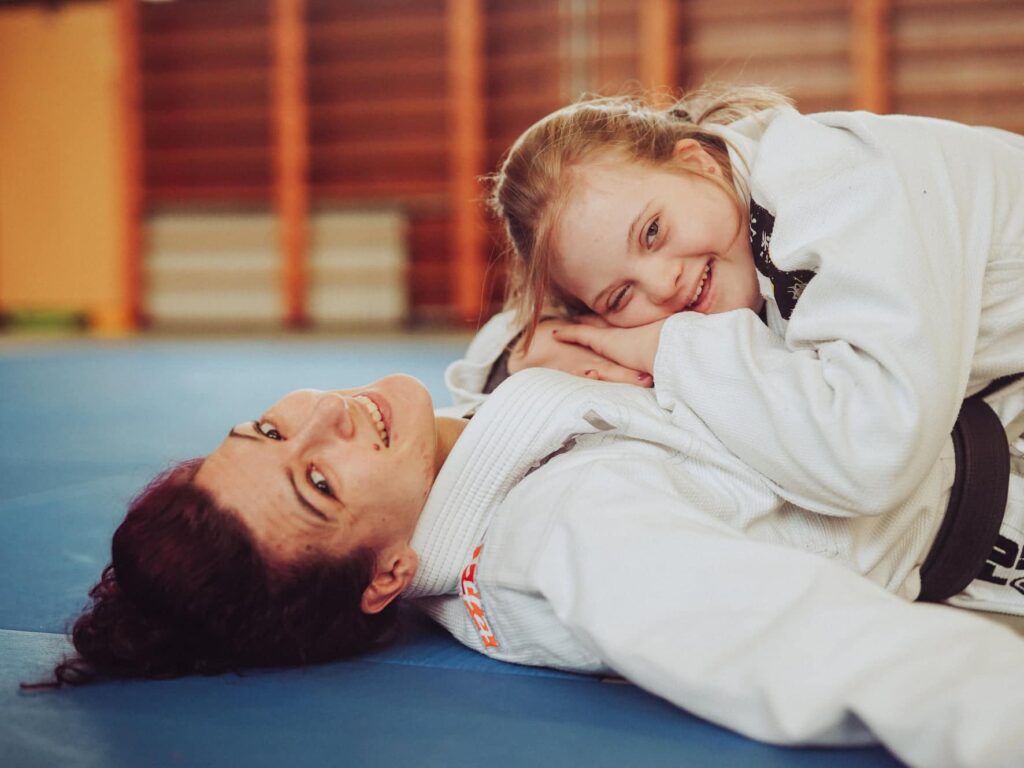
“After one judo session, I felt like I just gave them a million dollars.”
The first practice was a turning point. “At the end of the class, two girls with cerebral palsy hugged me for 15 minutes straight, thanking me for teaching them. I’ve never felt this kind of gratitude, my whole value system changed instantly”, Marina tells us.
From 2012, when she founded her association, until today, she holds practices for 40 kids, in five groups; kids with cerebral palsy and motor disabilities, Down syndrome and intellectual disabilities, kids from the Centre for Education of Children and Youth, kids with motor and intellectual disabilities, and girls with motor and intellectual disabilities.
All the groups are divided according to the needs and possibilities of each child. “Creativity is the most important skill here”, Marina continues. “You have to adapt each technique reflective of their disabilities and needs. It’s a matter of trial and error.” In her efforts, she has help from coaches, physiotherapists, and experts.
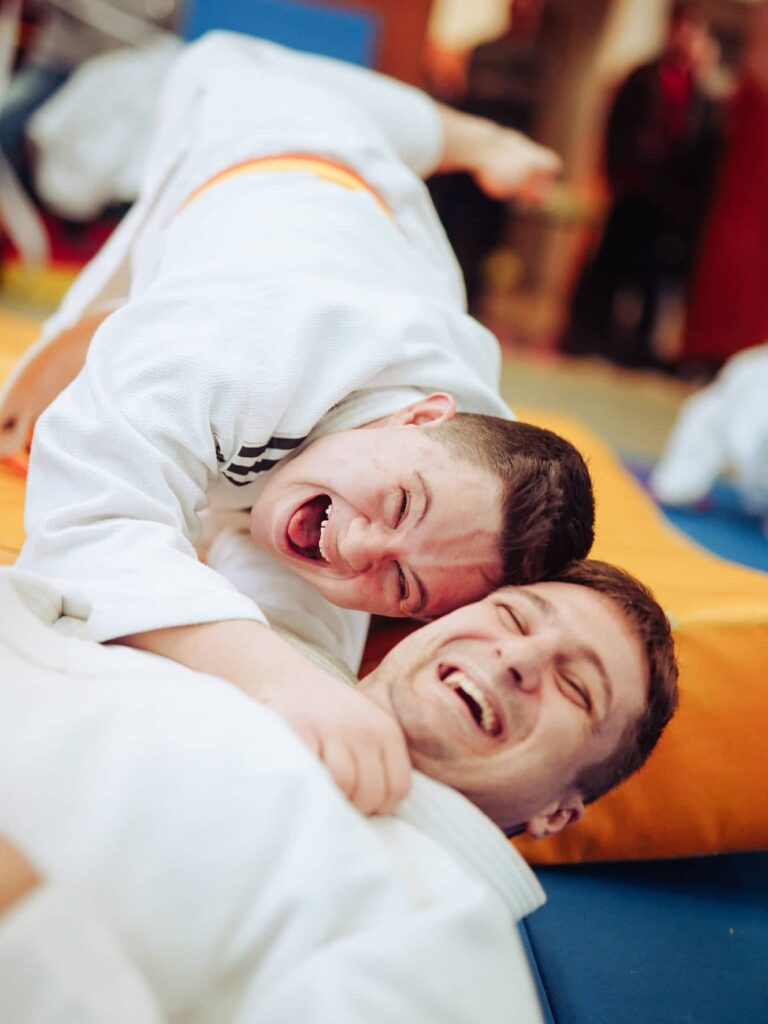
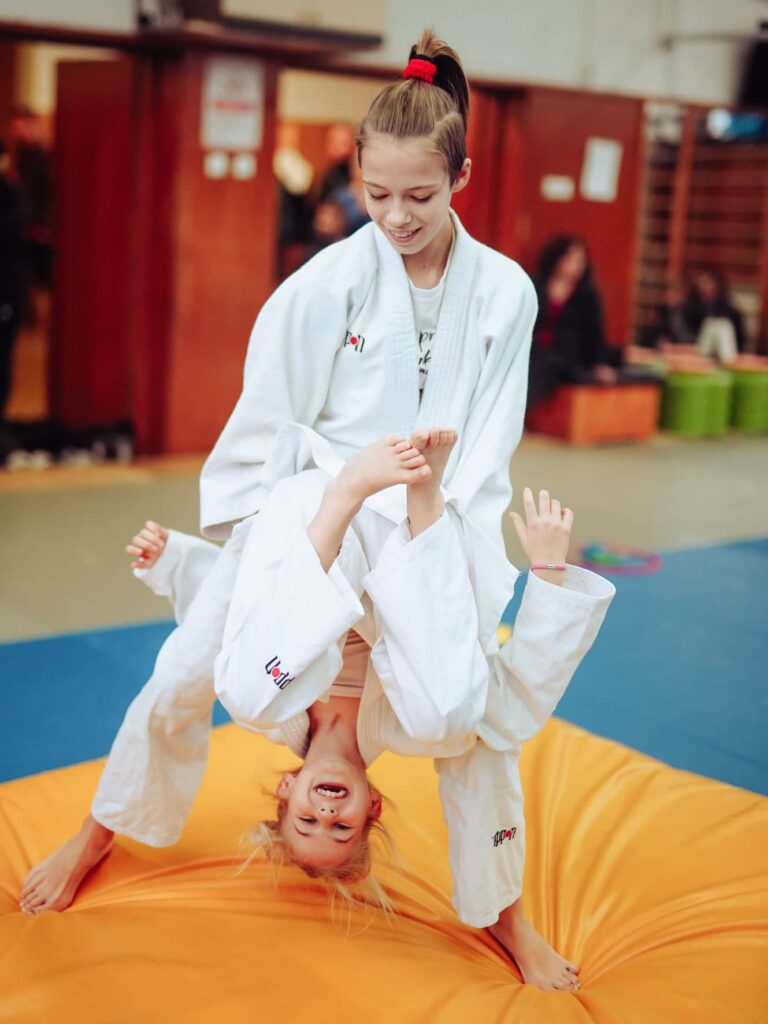
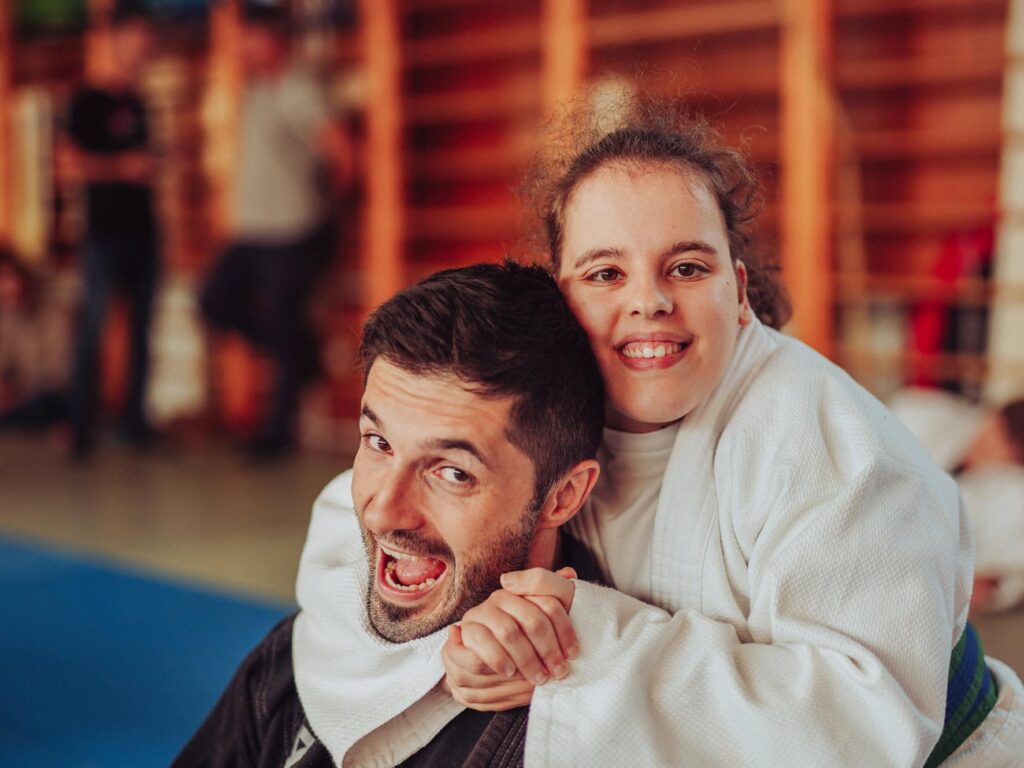
“By creating friendships, we live inclusion.”
The kids with disabilities can count on, not only the help of adults, but also their peers from Judo Club Pinky. Marina has created an encouraging, supportive space where children can train without stereotypes and judgement. That kind of environment results in breaking their psychological barriers. It gives them self-esteem and the opportunity to see themselves as athletes. This kind of integration breaks the societal prejudice, and helps children see beyond their disabilities. They spend time together with kids without difficulties, go to concerts, theatre, even weekend trips – for some, the first time without their parents.
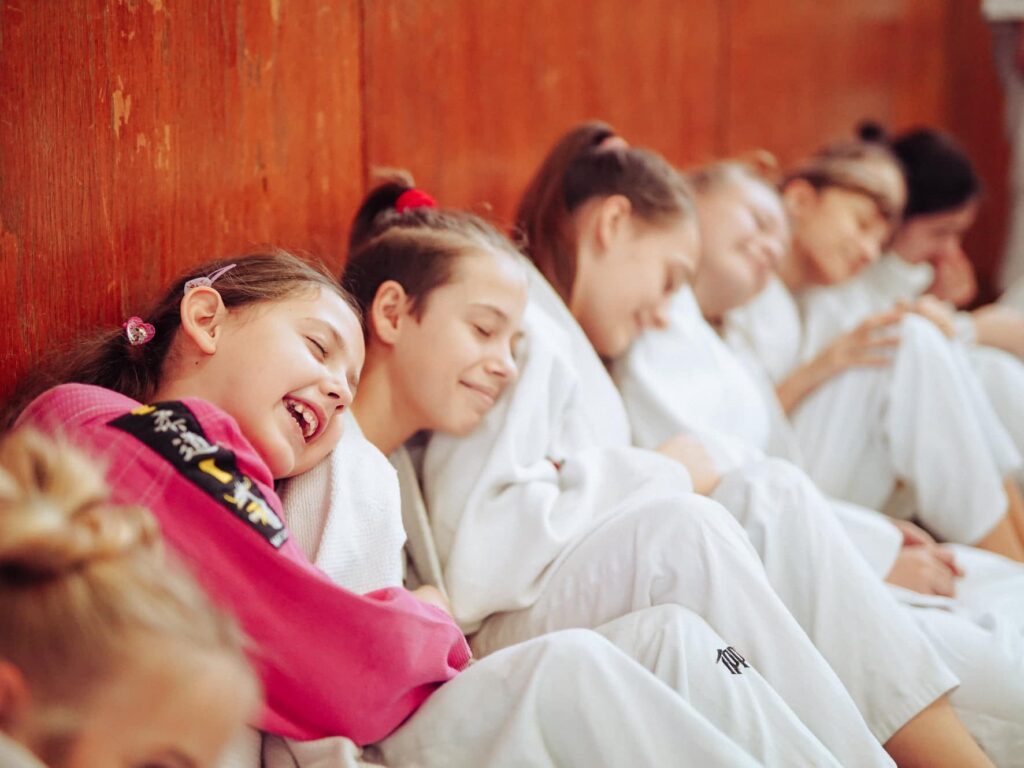
Judo teaches them a healthy view of life. It helps them open up, socialize and develop skills needed for a quality life. On the other hand, children without disabilities develop sensibility society desperately needs, and learn to treat children with difficulties as their equals.
Marina’s judo club is completely free, running entirely off donations. “These parents have enough expenses with medical bills”, Marina emphasizes. “It is challenging but working with these kids is rewarding in itself.”
With initiatives like this, encouraging inclusion from the youngest age, we are helping in eliminating stereotypes and prejudice in the society. Marina is an example of a person who listened and recognized the need for society to change. And she took it into her own hands. We see an extraordinary woman fulfilling her vision and making a change. It’s on us to support her, share her story. So that one day, inclusion can become a norm.
More about the club and the positive change they make
If you wish to support their efforts, check out this fundraiser “800 km of Happiness” and raise money for sport inclusion for people with disabilities. They are making the 820 km trip biking and running to ensure all activities remain free for all club members in 2022.

